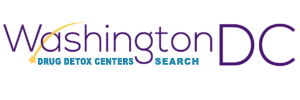Prescription Drug Rehab and Addiction in Washington D.C.
Prescription drug abuse is widespread in the U.S. with more than 52 million people over the age of 12 having used prescription drugs for nonmedical purposes, according to the National Institute on Drug Abuse (NIDA). Many who abuse prescription drugs like opiates and central nervous system stimulants will become addicted and unable to quit using the medication despite its consequences. Fortunately, there is hope for recovery through prescription drug addiction rehab.
The Best Approach to Prescription Drug Addiction Rehab
An effective prescription drug addiction rehab program must address both the physical dependence on the medication being abused and the mental, emotional and spiritual dimensions of addiction. The Substance Abuse and Mental Health Services Administration reports that a holistic approach centered on the individual needs of each person seeking treatment helps to ensure the best possible outcomes from prescription drug addiction rehab.
Elements of Rehab for Prescription Drug Addiction
While each person who is suffering from prescription drug addiction will require an individual plan of care to treat the disease, effective holistic programs usually include three key elements:
- Medical Detox.
Abusing prescription drugs causes changes to the way the brain and body work. When a person suddenly stops using a medication, the body has to rapidly go back to its natural state, which results in unpleasant and even dangerous symptoms of withdrawal. Rehab for prescription drug addiction begins with medical detox to address this physical dependence and safely eliminate all traces of drugs from the body.
- Treatment.
The NIDA cautions that medical detox is typically not successful as a sole treatment for addiction over the long term. People who are suffering from prescription drug addiction must receive treatment for the mental, emotional and spiritual aspects of the disease. The treatment phase can include numerous traditional and complementary interventions and allows recovering addicts to understand why they resorted to drug abuse. During treatment, individuals gain skills, tools and strategies that allow them to deal with stress and negative emotions without drugs going forward.
- Aftercare.
Addiction doesn’t go away due to treatment, so rehab programs conclude with aftercare plans that provide ongoing support for recovering addicts. Plans may include therapy, support groups and assistance with housing, job placement, vocational training and legal matters to set those finishing treatment up for the best chances of success in the future.
Holistic Treatment for Prescription Drug Addiction
At drugdetoxcenterswashingtondc.com, we recommend holistic approaches to treating addiction to prescription medications as recommended by the Substance Abuse and Mental Health Services Administration. Our experienced team develops customized treatment plans based on each person’s specific physical, mental, emotional and spiritual needs.
Drug Detox Centers Washington D.C. offers luxurious, comfortable, residential settings for prescription drug abuse treatment. The supportive, calm and safe environments that we promote are conducive to recovery.
To get more information about prescription drug addiction rehab in Washington, D.C., contact Drug Detox Centers Washington D.C. at (202) 400-3795.
